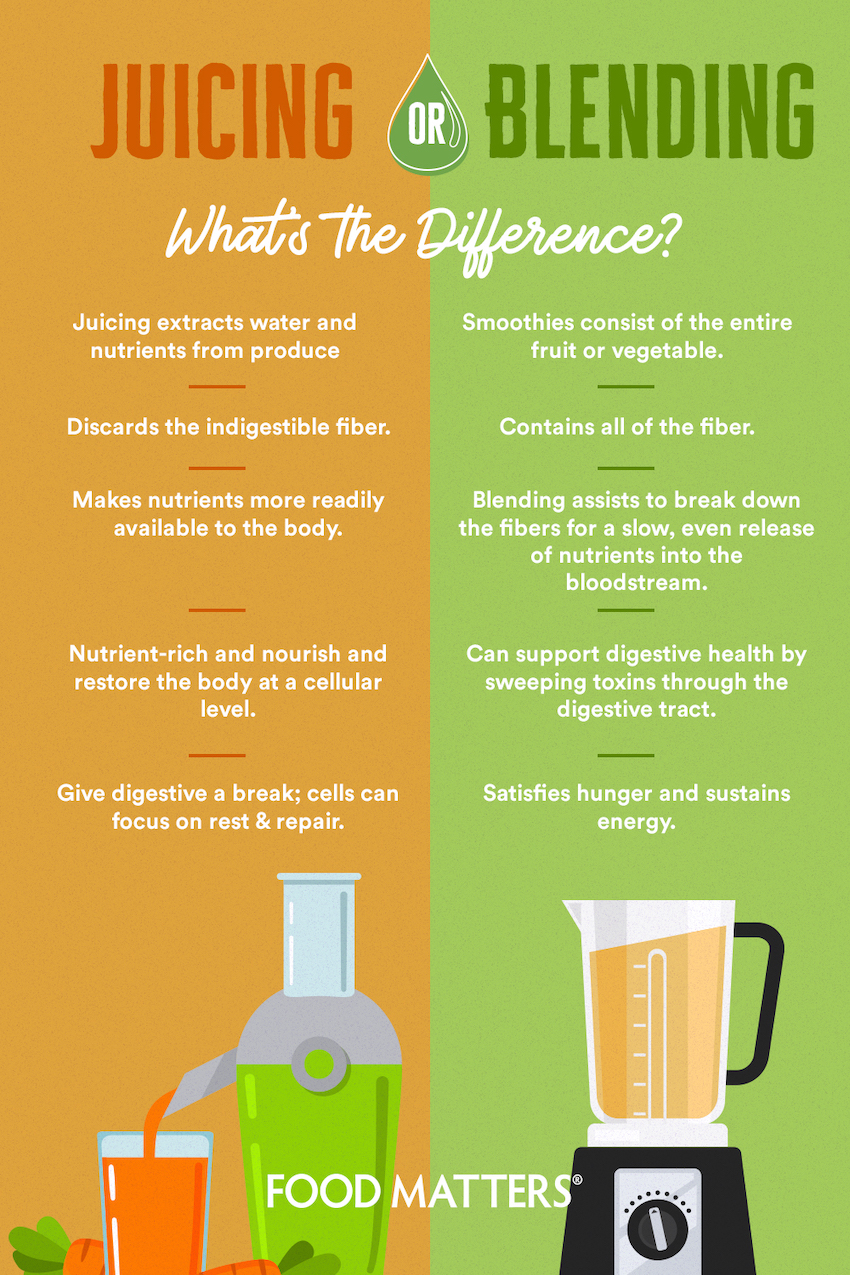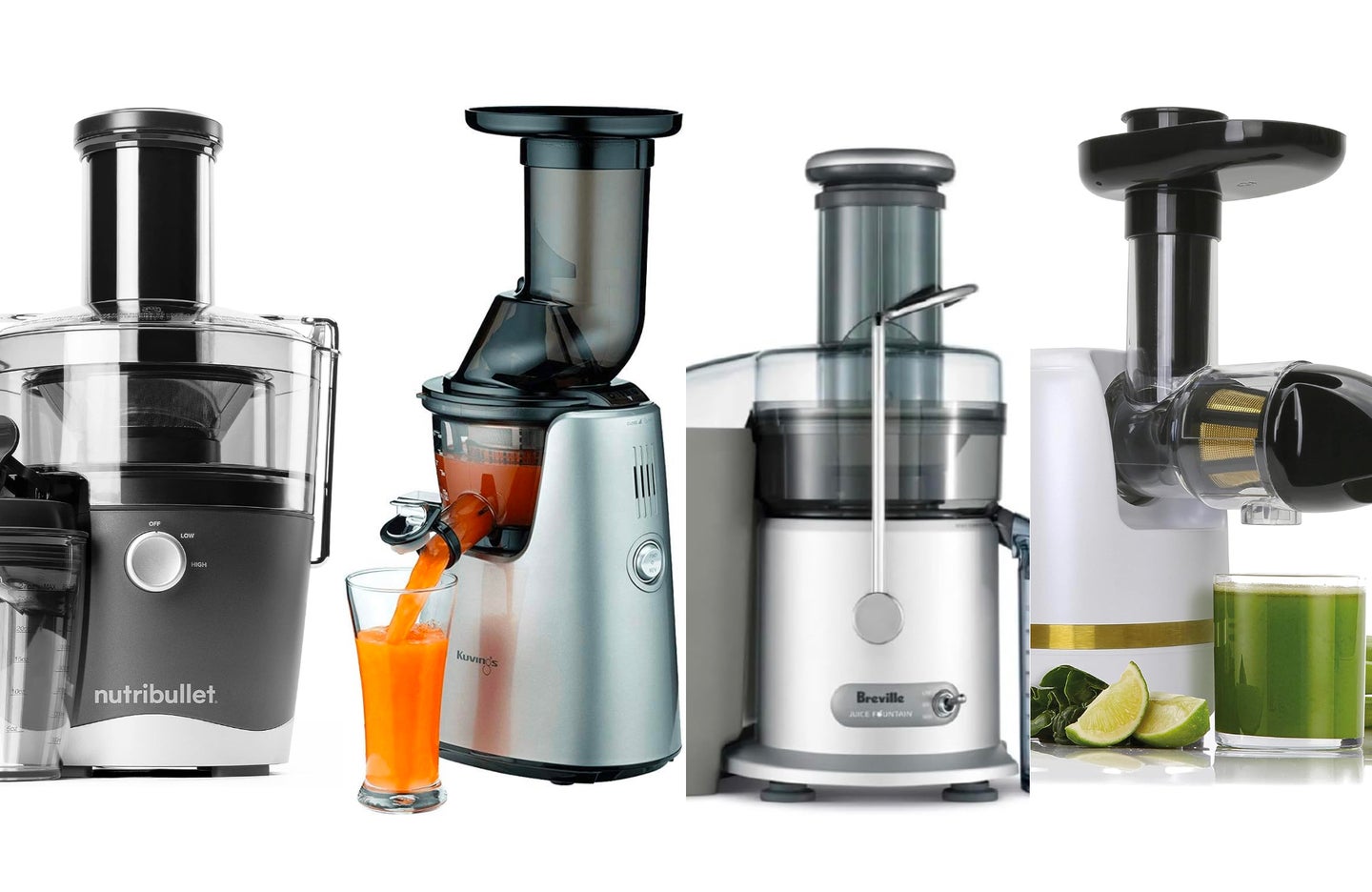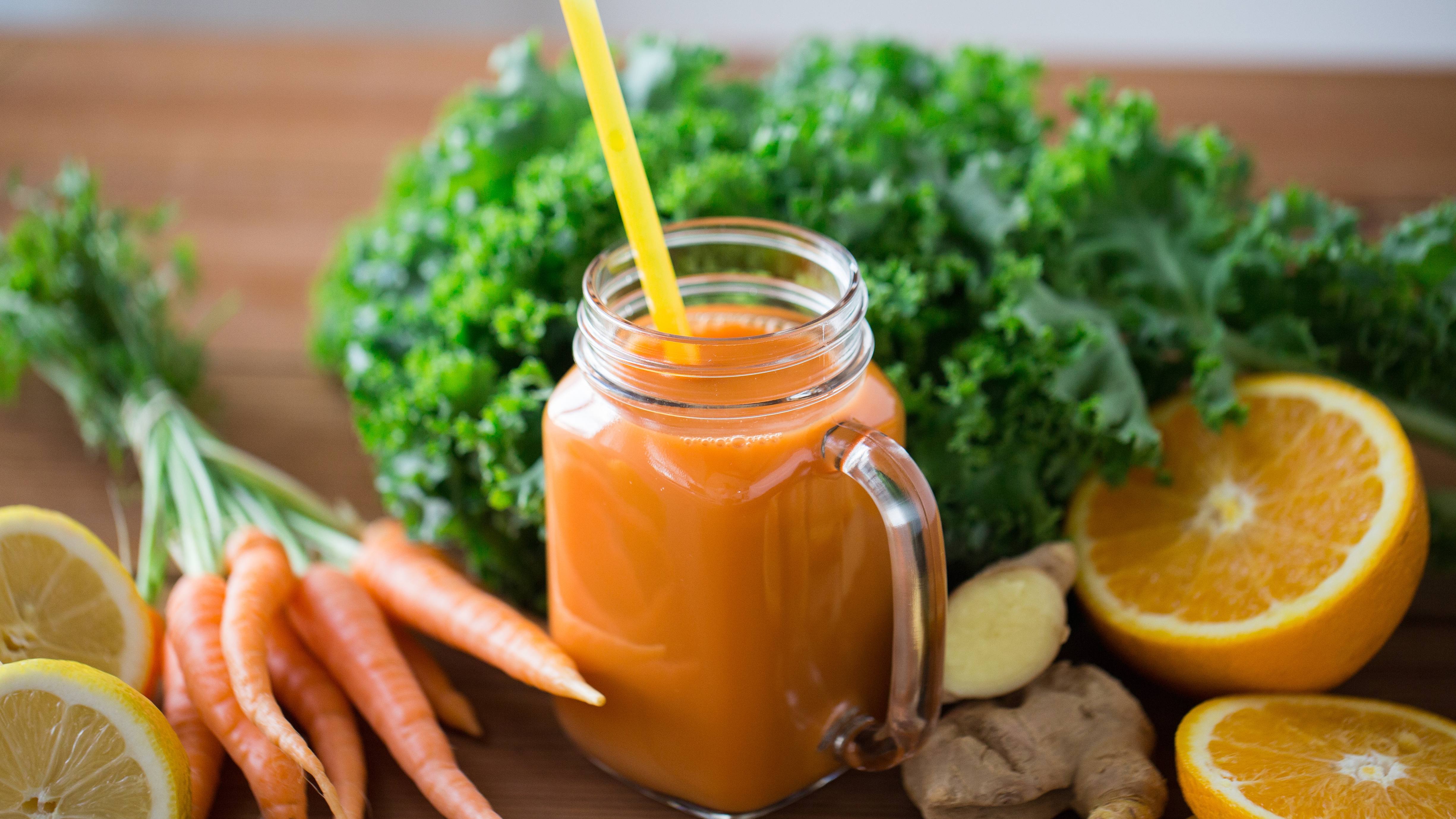Antwort Does juicing destroy nutrients? Weitere Antworten – Do you lose nutrients when juicing
Juicing often involves using a machine to take out the juice from fresh fruits or vegetables. The liquid contains most of the vitamins, minerals and plant chemicals found in the fruit. But whole fruits and vegetables also have healthy fiber, which is lost during most juicing.The Cons of Juicing
- May Spike Blood Sugar Levels. Even when you juice your own fruits and veggies, you are taking away all of the fiber which counteracts the carb load and you're left with the juice and the sugar in it.
- Not Great for Those with Kidney Disorders.
- Insufficient Calories.
Vegetables That Should Not Be Juiced Everyday
Spinach contains oxalates and raw kale contains goitrogens. Oxalates are also found in bananas, mangoes, cauliflower, and more. Goitrogens are found in raw cruciferous vegetables and can affect thyroid function in large amounts.
Is juicing actually healthy : While there are advantages to consuming fruit and vegetable juices, there is no scientific evidence to support the idea that juices and cleanses are a necessity for health. Many health claims presented with juicing and detoxing plans are not based on scientific evidence.
What are the disadvantages of juicing
Con: Juice can be sneakily calorie-dense
Juice contains fructose, and while this is a natural source of sugar and carbs, drinking too much of it may lead you to consume too many calories. For example, juicing 5 fruits can add up to 500 calories and more than 100 grams of sugar, says Zarabi.
Is juicing a waste of food : A single 16-ounce serving generates, on average, 4.5 pounds of perfectly edible food waste. A few months ago, I wrote an article called 'Stop Juicing. Start Eating' that pointed out the nutritional pitfalls of drinking too much juice. Lack of fiber and too many calories in a single glass are the main issues.
Drinking green juice in moderation can boost your intake of multiple nutrients, but too much may cause serious side effects. Green vegetables are a rich source of oxalic acid, or oxalate, which is considered an antinutrient because it binds to minerals in food and stops your digestive tract from absorbing them.
More extreme juice cleanses are associated with negative side effects, including diarrhea, nausea, dizziness, and fatigue. There is no evidence that juice cleanses are necessary for detoxifying the body. Also, juicing may harm people who have kidney problems or take certain medications.
Why should you avoid juicing
More extreme juice cleanses are associated with negative side effects, including diarrhea, nausea, dizziness, and fatigue. There is no evidence that juice cleanses are necessary for detoxifying the body. Also, juicing may harm people who have kidney problems or take certain medications.Con: Juice can be sneakily calorie-dense
Juice contains fructose, and while this is a natural source of sugar and carbs, drinking too much of it may lead you to consume too many calories. For example, juicing 5 fruits can add up to 500 calories and more than 100 grams of sugar, says Zarabi.Juicing is a powerful way to maintain liver detoxification without compromising the body's natural healing process. Here is one of our favourite juice recipes that's great for liver cleansing, anti-oxidation and anti-inflammation.
"Consuming juice every day may spike blood sugar levels, increase total calories consumed in the day, contribute to weight gain and increase risk of cavities," cautions Garcia. The health effects of daily juice drinking will vary depending on the ingredients and the type of juice.
Can too much green juice be bad for you : Gastrointestinal issues. The high fiber content of leafy greens can cause digestive problems like gas, bloating, cramps or diarrhea in large amounts, especially if you are not used to eating them. The fiber feeds the good bacteria in your gut, but too much at once may lead to excess gas and discomfort.
Can you just juice and not eat : While drinking freshly juiced fruits and vegetables may have many health benefits, consuming nothing but juice for three days or more is not necessarily healthy or sustainable in the long term. Any health benefits gained are only temporary.
Are there dangers to juicing
While most people's immune systems can usually fight off the effects of foodborne illness, children, older adults, pregnant women, and people with weakened immune systems (such as transplant patients and individuals with HIV/AIDS, cancer, or diabetes) risk serious illnesses or even death from drinking untreated juices.
More extreme juice cleanses are associated with negative side effects, including diarrhea, nausea, dizziness, and fatigue. There is no evidence that juice cleanses are necessary for detoxifying the body. Also, juicing may harm people who have kidney problems or take certain medications.





